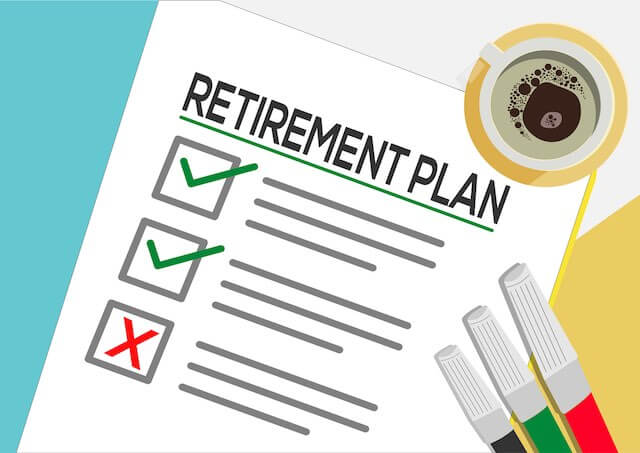At the beginning of this year, we put together a list of the most common mistakes we saw federal employees make during the course of 2020.
We’ve compiled this information and have outlined it below with information and suggestions for consideration for each. At the end of this piece, you can find out how to get a free e-book on retirement questions you should be asking yourself.
Failing to Understand Changes to Benefits Upon Retirement
The first common mistake we saw federal employees make is that many failed to understand the effects of their elections of benefits at retirement and how one can affect another.
Take FEHB, for example: Many people don’t understand how FEHB works in retirement and that in order to keep it in retirement, you must have it prior to retiring for 5 years and be eligible for an immediate pension.
Now here’s a question: if you were to pass away as a retired federal employee with FEHB and your spouse survives you, would you be okay with your spouse losing FEHB coverage?
That should scare you. This is a mistake we saw happen time and time again. A surviving spouse is not eligible to continue FEHB after the retired federal employee dies unless they elected a survivor benefit of their pension.
You might be thinking, well of course someone would elect the survivor pension! However, this is not always the case. Quite often, people have accumulated enough assets in their portfolios that they may not see a survivor pension as a necessary thing and forego it so that the employee’s pension is not reduced by 10% during their lifetimes.
They’d rather get the higher payout while they are alive and perhaps get another life insurance policy instead. This might not be the smartest move as this means your spouse will lose their healthcare coverage upon your demise.
The exception to this is if the spouse is also a federal employee that’s eligible; they would be entitled to their own coverage in this case if they meet their conditions.
If you ever hear the term “pension max” from any retirement seminars, let’s discuss it first before you make any moves. We’d be happy to look at what you’re offered to make sure it’s not going to hurt you in the long run.
Not Creating a Retirement Budget
The next common mistake is not creating a retirement budget. Too many people believe that they’ll just keep the same level of pay into retirement as they make during their time working.
This might certainly work for you where your pension, social security, and portfolio withdrawals replace your income-while-working amount dollar for dollar, but is that sustainable?
Most people go through life without really budgeting. Sure, some people watch their spending to make sure they’re not spending too much and save in their investment accounts, but are you really creating a detailed budget?
For retirement to be successful, you need to have a budget in place. Once your portfolio begins paying your paychecks in retirement, how do you know how long it will last?
How much can you take out safely each month? What happens if you have a big expense like a new home, or a reno, or a big health issue? Did you factor in taxes?
What happens if the markets tank and your portfolio takes a big hit?
There’s an old “rule” in financial planning that says you could take 4% from your portfolio to be “safe”.
First of all, these days that’s a bit high, and I put that in quotes because there is no blanket rule for everyone. It depends on a number of varying factors, and anyone that tells you otherwise doesn’t have the full picture. How do you manage your portfolio so that you can keep making those withdrawals throughout retirement?
Or on the other hand, what if you’re selling yourself short? Being here in DC, many of our clients receive high locality adjustments and have accumulated significant wealth. Have you truly considered all of what your money can do for you?
While we encourage people to dream, no plan is perfect if you can’t stick to a budget, and this is different for everyone.
We conducted an interesting experiment with our clients, surveying groups that had anywhere from $1M to $8M, asking them how they rated themselves in terms of levels of affluence.
The results were astonishing – we had people with $1M who thought they had won the lottery and others who felt like they were barely putting food on the table. Even more astonishing, we had people with $8M who felt like they were an average middle class working family.
Regardless, the point of this experiment was to confirm that money means different things to people, and that people can have misconceptions about their wealth and the reality of their situation. I can tell you that even with $8M sitting in your portfolio, you can still get into bad habits and blow up your retirement plan.
Expecting Their Pension Payments on Retirement
The next mistake we commonly saw federal employees make was expecting their pension payments shortly after retiring. The truth is, it’s somewhere between a couple of months to 6 months in most cases but could be more.
The tip here is that you need to plan on not receiving your full payments until 6 months after you retire. The reason for this delay is that OPM is adjudicating your retirement benefits during this time. You should ensure that you’ve planned to cover your expenses in that interim.
What does that mean in terms of cashflow? Having three to six months’ worth of expenses readily available is a good start, but what happens if you have an unplanned cash need in the interim? Does that mean you should have six to twelve months? Should that amount be in all cash? Holding that much in cash creates a significant cash drag on your portfolio.
You can keep it invested, but what if we’re in recessionary territory in the markets? Now you’re susceptible to market volatility and have to potentially draw money from a down portfolio, losing money.
“Okay Thiago, so I’ll just invest in low volatility investments like bonds, now I’m safe.” Not such a great idea either with rates as low as we have these days. If rates have nowhere to go but up, that means that bonds you buy today could be worth less tomorrow. So even bonds aren’t “safe”.
So what do you do? You need the right balance of investments. Enough to not cause a drag, not too much where you’re at risk, and consider income paying investments to provide some additional cashflow.
I know I’m going to get someone saying, “Thiago, why don’t you just tell us how to be invested?” You guys know better than that – I can’t give you specific advice without knowing your circumstance. Talk to an advisor if that’s what you’re looking for.
Failing to Check Their SF50s
The next mistake we saw employees make was failing to review their SF50s. We’ve seen cases where at retirement, employees went to submit their retirement paperwork and realized that their employment record had incorrect information. While it’s not incredibly common, this does happen, especially if you’ve had a break in service or applying credible service.
Agencies make mistakes all the time and data can be wrong on your work history. Keep this up to date. If there is a discrepancy in the dates in which you worked, this can cause hiccups and you may need to investigate and get it corrected to be able to retire properly.
I’ve seen several cases were employees confused their service computation, which is for leave, with their retirement computation. As federal employees, you are responsible for all of your information and for all elections that you make, so keep good records yourself and don’t rely on OPM for all of this.
Not Understanding Taxes
Next up, taxes. I wrote a piece last year on how federal employees are taxed. We found that many federal employees didn’t fully understand how they’ll be taxed in retirement.
Go read that article linked above, but here’s a brief recap: your pension – fully taxed. Social security – mostly taxed. Traditional TSP withdrawals – fully taxed. Individual or joint accounts – capital gains taxes. Inherited accounts – depends if it’s an IRA or non-retirement. If you have a Trust, that’s where it gets complicated depending on the type of trust. Then you have Required Minimum Distributions (RMD) to worry about if you’re over 72, or if you inherited an IRA.
What I’m trying to say here is that many feds don’t account for potentially having close to 30%+ (maybe more if you have RMDs) less assets than they really do. And tax rates could change. You have to make sure you’re keeping up with all of that.
Taxes are a thing. The good news is that you can project what these will be, assuming current or close to current tax laws anyway.
Failing to Dream
Last one. Failing to dream about their retirement.
What do I mean? I’m not trying to be woo-woo, but have you actually given it more thought than just not working?
Imagine waking up having been retired for 5 or 10 years and you look out of your window in the morning. What do you see? Do you see mountains? Do you see a beach? Maybe it’s a concrete jungle.
Have you considered that maybe you don’t need to work until you reach your full 20 or 30 years? How can you know this? When you have a plan, you can begin to see what your wealth can accomplish for you. It’s difficult to make these decisions when you can’t see far enough ahead to know that you’ll be okay if you own that second house or that you’ll be okay spending more in retirement or traveling more.
Maybe it’s investing more in your kids or grandbabies. Maybe it’s being more philanthropic. We’ve learned that we often need to help people dream big. Don’t sell yourself short in the planning stages. We’re programmed our entire lives to be savers and worry about the future. Retirement is your time to let loose, but make sure you have a plan. After all, it’s not just your money, it’s your future.
If you made it this far, you get to find out how to get the e-book I mentioned. It’s super easy. Just send an email to welcome@rmgadvisors.com with “e-book” in the subject line, we’ll get it out to you.





